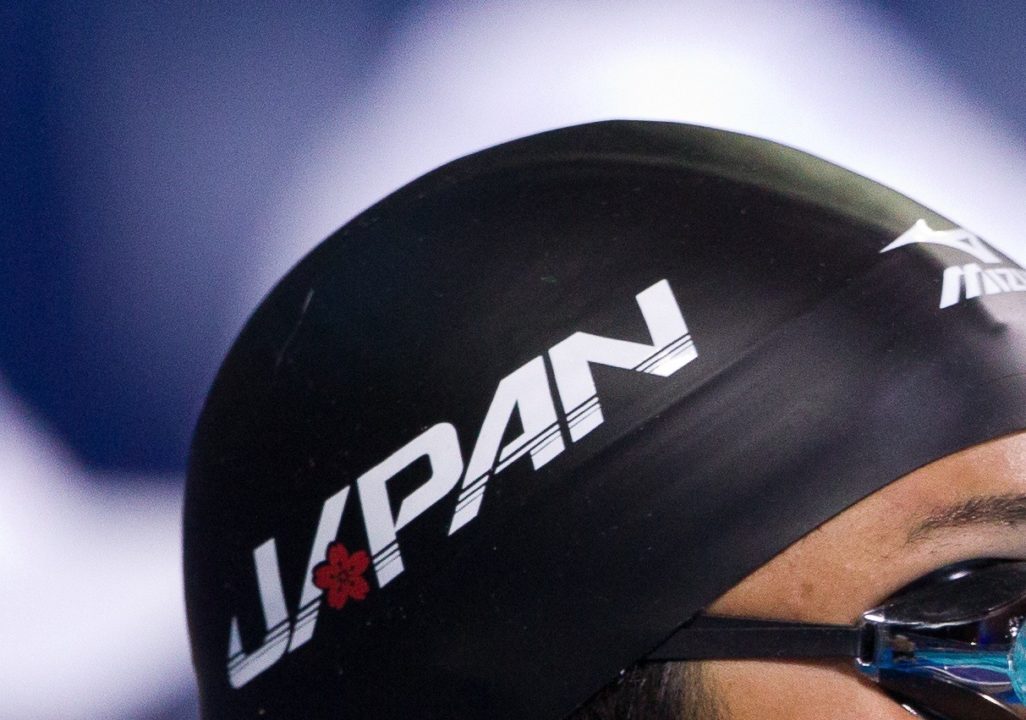The first event of the final session of competition at the 2013 Japan Open, the 200 IM’s, provided the most excitement of the day in both the men’s and women’s races.
First, in the women’s 200 IM, breaststroker-turned-IM’er Kanako Watanabe swam a lifetime best and broke the Japanese National High School Record with a 2:11.96; that dips .04 seconds under the old record set by Megumi Higuchi.
18-year old Miho Teramura wasn’t far behind, placing 2nd in 2:12.32, and Miyu Ootsuka was 3rd in 2:12.43.
Watanabe is becoming Japan’s answer to Olympic 200 IM bronze medalist Caitlin Leverenz; she began as a high level breaststroker, but is now transitioning toward becoming a high-level IM’er. She, not surprisingly, had the fastest breaststroke split in 36.5, but maybe a bit more surprisingly, she didn’t take over the lead in this race until the freestyle. If she can get a little more out of her backstroke, she could be a serious international contender with that closing speed.
No records were broken in the men’s version of the 200 IM, but after sort of a ho-hum performance all week, Kosuke Hagino saved his best swim for the final day. There, he won in 1:57.32, ahead of Daiya Seto’s 1:58.27 – a reverse finish of what we saw in the 400 IM. Seto still looked very good on his closing freestyle, which is not a strength of his race, so this could be two top-5 finishers at this summer’s World Championships (that’s a season best for Seto.)
Showing off impressive depth, Ken Takakuwa (1:59.08) and Hiromasa Fujimori (1:59.74) were also under two minutes; nobody else in the world has close to the five total swimmers that Japan has put under the two minute barrier, including the Americans (Chase Kalisz is their only conqueror thus far.)
The rest of the session was fairly strong, though not spectacular. Up next came the 50 backstrokes, where Aya Terakawa won the women’s race in 27.86 and Ryosuke Irie won the men’s in 25.17; both looked a little better in the 100 earlier in the meet.
After that, 17-year old Miki Uchida won the women’s 50 free in 25.49, just .01 ahead of Misaki Agou. Kenta Ito and Yuuki Kawachi tied atop the men’s standings in 22.36. Both sets of times are pretty good, considering that no Japanese woman has ever dipped into the 24’s, nor a Japanese man into the 21’s.
Natsumi Hoshi had a very good swim to win the women’s 100 fly in 58.56, four-tenths faster than Naho Kobayashi. That time for Hoshi is almost identical to the one that she used to win the Japanese National Championship in April, though for Kobayashi it was quite a bit of an improvement.
Yuka Ktaou was 3rd in 59.06 – a solid result for the veteran as well.
The men’s race went to Masayuki Umemoto in 52.44, with impressive 33-year old Kouhei Kawamoto taking 2nd in 52.59. Remember that the National Champion, and Worlds representative in this race, Takurou Fukii is the lone member of the Japanese National Team who is not racing at this meet, as he’s dealing with an injury.
And finally, the meet closed with the 200 breaststroke that Japan is so good at. Rie Kaneto won the women’s race in 2:23.83, followed by Mio Motegi in 2:23.55. Runa Imai, the now-13 year old who shocked the world with her results earlier this year, was 3rd in an amazing 2:25.41 – though still three tenths from her best time.
Olympic silver medalist Satomi Suzuki, who won the 100 earlier in this meet, didn’t swim the 200.
The men’s final was also without its National Record holder (and in this case World Record holder) as Akihiro Yamaguchi didn’t compete. That left the win to 18-year old Kazuki Kohinata in 2:10.43, just out-touching Ryo Tateishi in 2:10.45.
Kosuke Kitajima, who seemed to really be ‘feeling it’ at this meet, was 3rd in 2:11.55.
